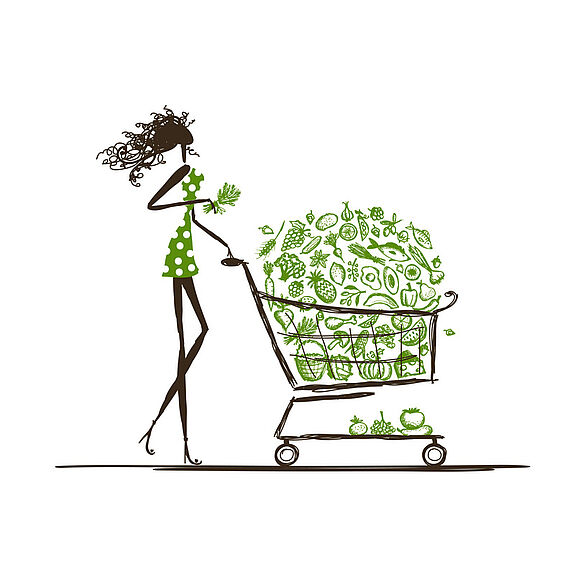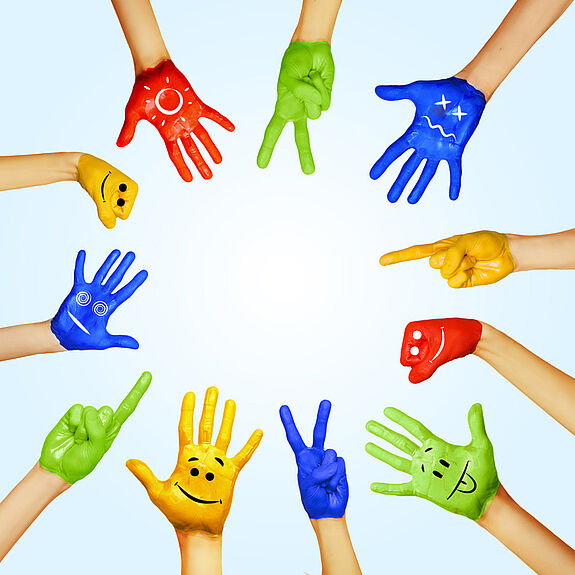Gender
The Small Difference
When dealing with gender relations, one finds that the plethora of institutions and projects that focus on this topic is astonishing. Even divorced from stereotypic images, their research and findings point in the same direction. The gender diversity of people working together, which has found its way into the German language in the form of the English word 'diversity', raises the level of acceptance of difference, increases people's creativity and performance and consequently that of their organisations and companies. One could assume that, in an economy built for efficiency and optimisation, these effects would be taken advantage of with pleasure. Certain major companies have already started to do so.
In particular, transformation projects towards more equality, climate protection and sustainability could profit from this. In practice, however, we notice only a few exceptions despite all of the insights achieved so far. Gender relations are chiselled in stone in many places; inequality and unfairness are hardly developing in a positive direction; and structures and stereotypes persist. The key topic of ensuring the fair division of care of children, the sick or the elderly between the genders continues to be unsolved politically and practically, even though sustainable development would require a major leap forward in this domain.
To steer attention towards the possibilities for achieving greater sustainability through greater gender justice, we have collected a number of findings, phenomena and positions in this magazine: from an introductory interview on gender and sustainability to articles on toothpaste for princesses and resource-light consumption, down to a photo report on cotton producers in India; and from standpoints regarding careerists and changes of perspective to reports on women’s economies and female pioneers down to demanding more life through less work. In order to prevent this volume from getting lost amongst the countless publications on this topic, we have chosen a special title for this issue: S/he. We wish you pleasant reading.
Ralf Bindel and the factory team
Translated from the German by Christoph Ulbert, Chantal Grube and Ina Besler
More articles on the topics of gender relations and sustainability you will find not only online but in our magazine S/He to download. The PDF-magazine is finely illustrated and good readable on tablets and screens and it contains all articles and pictures including numbers and quotations on topic.
Themen
- The Domino Effect: the Mobility Transition as an Engine for the ‘Great Transformation’
- Cities Use the Space
- Decarbonization by 2030
- The fear of biting the hand that feeds you
- Where investing is a pleasure
- Why divestment is going to change the world
- A Robin Hood tax for climate protection
- May the Force Be with Us
- Modern Strategies
- The prerogative of interpreting the future now lies with the companies involved in climate protection”
- From Negotiating to Trading Equitably
- Can a donkey be tragic?
- Rethink rather than rebound: a sufficiency revolution must precede the efficiency revolution
- On Rebound, Prebound and Performance Gaps
- So Let Us Seize Power Then!
- With Common Property Against Political Failure
- So Let Us Seize Power Then!
- The Comforting Beauty of Failure
- “It Is Not Impossible at All.“
- Resource-light shopping
- Men Have Not Stopped Giving the Advantage to Women – So Far
- Toothpaste for Princesses and Soup for Pirates
- It is about equality
- A nice day
- Initiative instead of frustration
- The right ingredients
- Resilient for Life
- Not only, but also
- Appreciation – more please!
- Worth more than money
- Learning to value the value of goods
- Worth and Values
- The Transformative Power of Science
- Historically effective: How innovation and technology transform
- The Disappearance of Products
- Growing Older 101
- Columbus’ Egg
- It Works! In Theory at Least ...
- What If...?
- Analysing Separately – Thinking and Acting Together!
- Let’s Break Away from Determined Breaking Points
- More Gold in Waste than in Mines
- The art of separation
- Should you really DIY?
- The Aesthetics of Do-It-Yourself
- Standing on One’s Own Feet
- From the handaxe to desktop fabrication
- Using Shares to Survive the Crisis
- When Citizens participate
- Possess to Participate
- The Right Growth at the Right Time
- Gunter Pauli and Blue Economy
- When Sustainability Grows
- How we treat Growth
- Illusions about Growth







